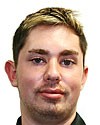Amid all the talk of a Lesbian, Gay, Bisexual and Transgender center on campus, there has been a less than positive reaction. The Arizona Daily Wildcat’s own editorial board dismissed the idea, if it used university funding, as “”misguided at best and reckless at worst.””
Think again, my esteemed colleagues.
A campus center focusing on the unique concerns of lesbian, gay, bisexual and transgender students is absolutely necessary to grow tolerance of this misunderstood community and increase the feeling of inclusion for LGBT students.
At the same time as this mini-debate was happening in the pages of this paper, a report released in June 2006 by the Gay, Lesbian and Straight Education Network, GLSEN, was the focal point of a conference held this weekend to discuss school climate in Arizona.
The report is filled with statistics that prove we need a support center at the UA. Seventy-two percent of high-school age students report hearing the words “”faggot”” or “”dyke.”” If you think those words are fairly harmless, imagine someone saying the nastiest word for African-American, Jewish, Hispanic, Asian or Native American students.
And if you think those are just survey statistics, I have many stories from my own life and the lives of my friends to back up those numbers.
If this university has a commitment to recruiting and keeping top students, we should be offering support programs for students who need it.
I’ve been called a faggot and a fairy. My friend was hit with a bottle thrown from a car window while walking into a gay bar in Phoenix. There’s more, of course.
Discrimination against gay students is not over and is not even entirely condemned by the staff of high schools, as the survey showed. I believe the university community is already more tolerant than the general population but not nearly as accepting as it should be.
Beyond statistics and discrimination, the gay community already faces its own problems. Alcohol abuse, drug use, smoking and sexually-transmitted diseases are more common in the gay community – in some cases twice as common.
But why? There is no one reason, of course. Some cite the added stress of being gay, the lack of family connections and the club and bar scenes. Others notice that every minority group has higher incidences of unhealthy behavior.
Whatever the reasons or vices, an LGBT center on campus would be able to create and run programs to counter those problems. And while some cite Pride Alliance as a resource for LGBT students, I have yet to find that to be true.
Beyond that, Pride Alliance is not a proven bastion of support – so the loss of its programs for a larger, more inclusive, independent center would not make this columnist shed a tear. Its annual coming-out day events are mediocre and focus more on the extremes of gay life, like drag performances.
What the gay community on campus is really missing, when it comes down to it, is a consistent and open voice. Pride Alliance is cliquish because it is student-run, whereas an LGBT center could, by directive, have an inclusive staff.
A dedicated LGBT center could take over the current programs offered by Pride Alliance and add its own events. It could also offer a study area, counseling services, connections to outside service providers and much more.
The center that President Robert Shelton was instrumental in creating at the University of North Carolina-Chapel Hill brings national speakers, holds several consistent events and offers counseling and support services.
Most importantly, it exists as a full-time resource for students and staff. It has the funding, resources and skills to coordinate effective programs.
We, on the other gay hand, have Pride Alliance. Two vastly different programs, showing vastly different results. And it’s all about the support our university provides.
If this university has a commitment to recruiting and keeping top students, we should be offering support programs for students who need it, including the LGBT community. We’re an underserved community and one of the last minority groups that can be publicly disparaged without contempt.
If that doesn’t sound like reason enough to support this LGBT center, then I don’t know what is.
Sam Feldman is a political science senior. He can be reached at letters@wildcat.arizona.edu









